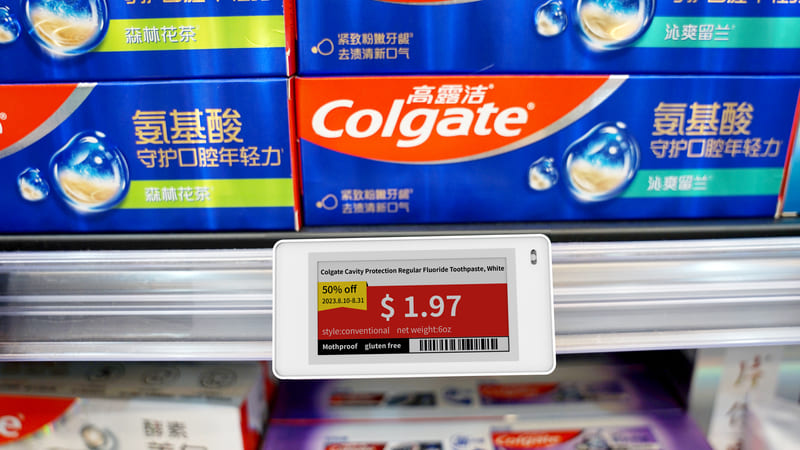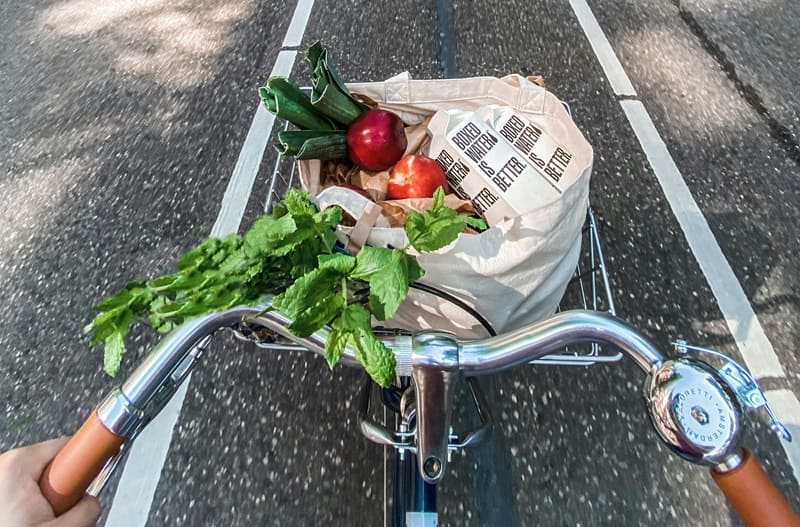Sustainability is no longer just a buzzword but a business trend. With the increasing awareness of environmental protection, consumers' purchasing habits are changing. A recent study found that more than 73% of consumers worldwide prefer to buy from retailers that implement sustainable practices. Obviously, environmental friendliness has become one of the factors of competitive advantage. Therefore, retailers should consider how to reduce adverse impacts on the environment, from reducing waste to reducing energy consumption.
How retailers can start sustainable changes
To achieve sustainability is not a short-term task, you should start by taking many small sustainable strategies.
1. Reduce paper waste
Most retail stores still use paper shelf labels to display prices. The update of prices causes these materials to be replaced frequently, resulting in a lot of waste. The most direct way is to use digital price labels, which can completely replace the use of paper labels.

In addition to reducing paper waste, using electronic price tags has many benefits. For example, the rapid batch update of electronic price tags can greatly improve your operational efficiency. And enhance the visual impression of your store.
2. Recycling second-hand goods-circular consumption
At the end of the life cycle, the vast majority of goods will become garbage entering the landfill. Retailers can promote the recycling or reuse of second-hand goods through take-back programs, which not only extend the life cycle of goods but also reduce the demand for new raw materials. Customers can return old products in exchange for store credit or discounts on future purchases, which greatly encourages circular consumption.
Many well-known retail companies have already launched recycling programs.
For example, H&M launched the Garment Collecting Program in 2013, which collects old clothes recycled from all over the world and provides customers with a thank-you voucher that can be used for their next purchase. The recycled content will be divided into three categories: re-wear, reuse, and recycle.;
Similarly, Uniqlo's RE.UNIQLO Initiative Program to recycle old clothes and divide them into donation, recycling and reusable categories.
3. Energy-saving lighting
Retail stores consume a lot of energy, especially lighting and temperature regulation. Switching to LED lighting systems is one of the most effective ways to reduce energy costs and reduce the carbon footprint of stores. LEDs use much less electricity than traditional incandescent lamps, have a longer lifespan, and require fewer replacements.
4. Sustainable packaging
We all know the harm of disposable packaging to the environment. Many retailers are turning to biodegradable or reusable packaging options, such as recyclable cardboard or plant-based materials, to reduce the impact of disposable plastics on the environment.
5. Reward environmental protection programs
Encourage customers to bring their reusable packaging, such as shopping bags, containers or bottles, and provide points or discounts to such customers, which can cultivate long-term loyalty and reduce waste. Such loyalty programs that reward environmentally friendly behaviors are also becoming more and more popular.

6. Local procurement
Transportation produces a lot of greenhouse gases. Your business can give priority to local suppliers and farmers, reduce transportation distances, and thus reduce carbon emissions. This move is particularly important in the food retail industry because shorter transportation times can also increase the freshness of food.
Adopting eco-friendly practices in retail isn't only about saving the planet - it's about reinventing the shopping experience and creating lasting value for both customers and businesses alike. Sustainability will play a pivotal role in shaping retail's next chapter, so now is the time to act!











